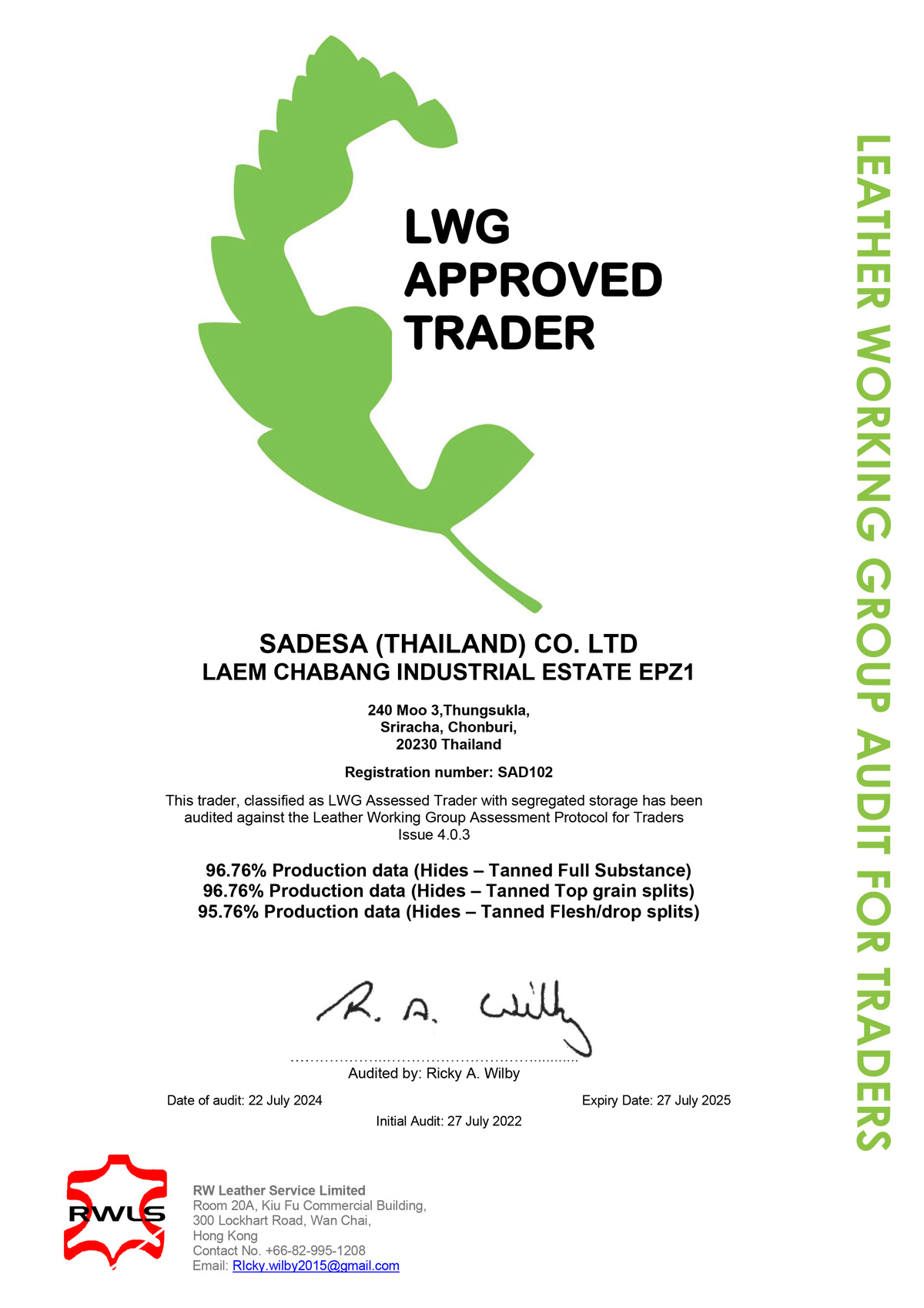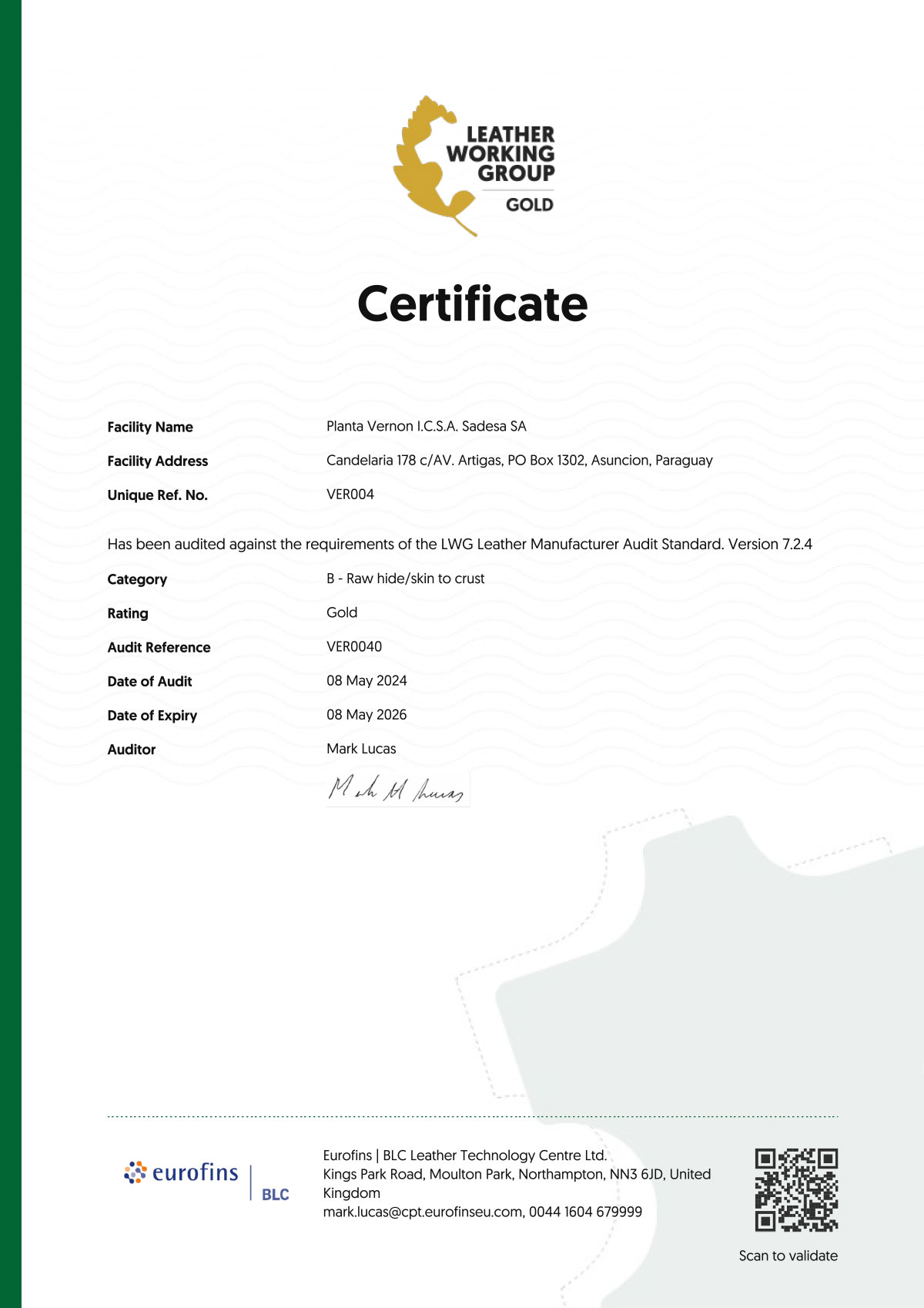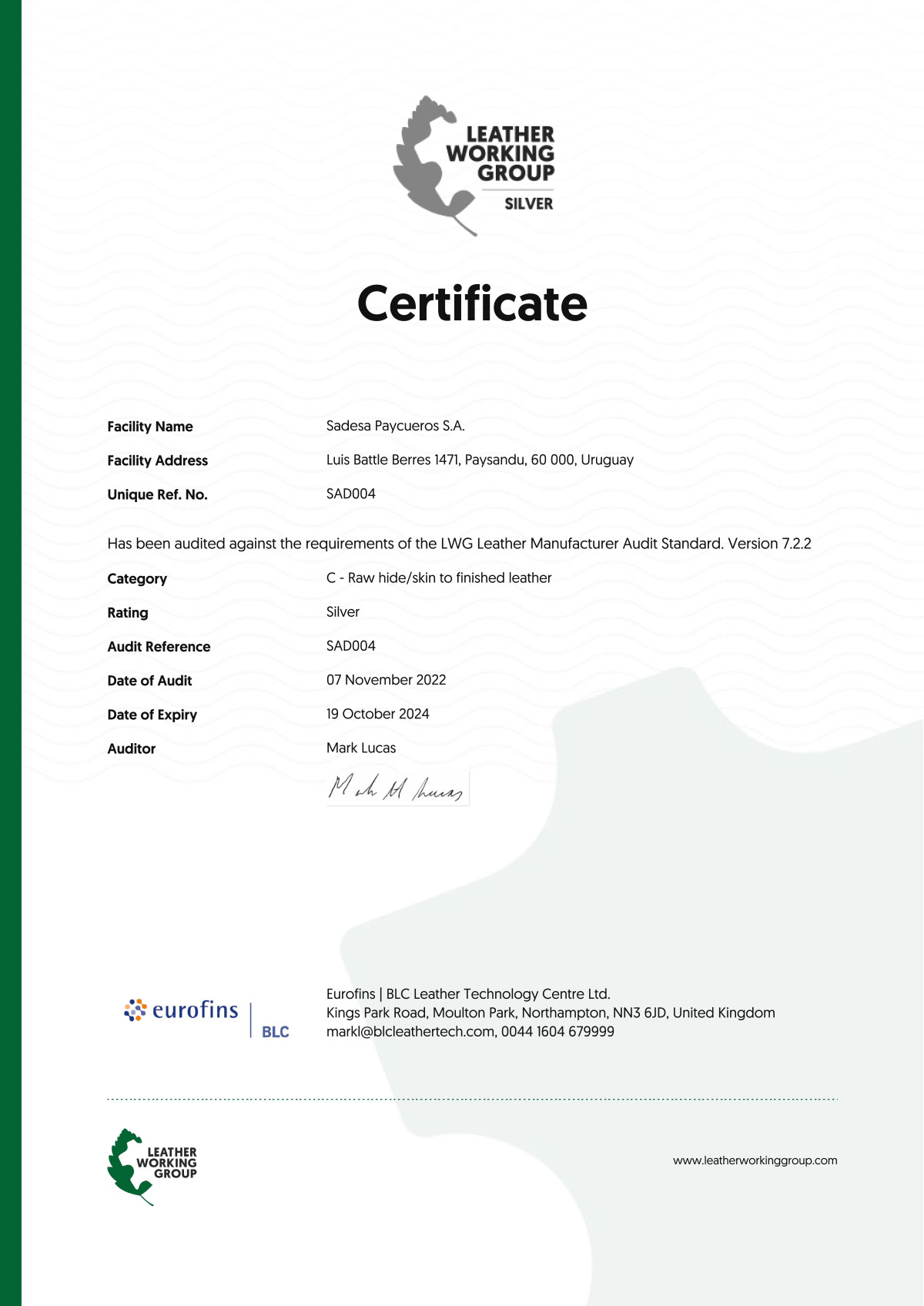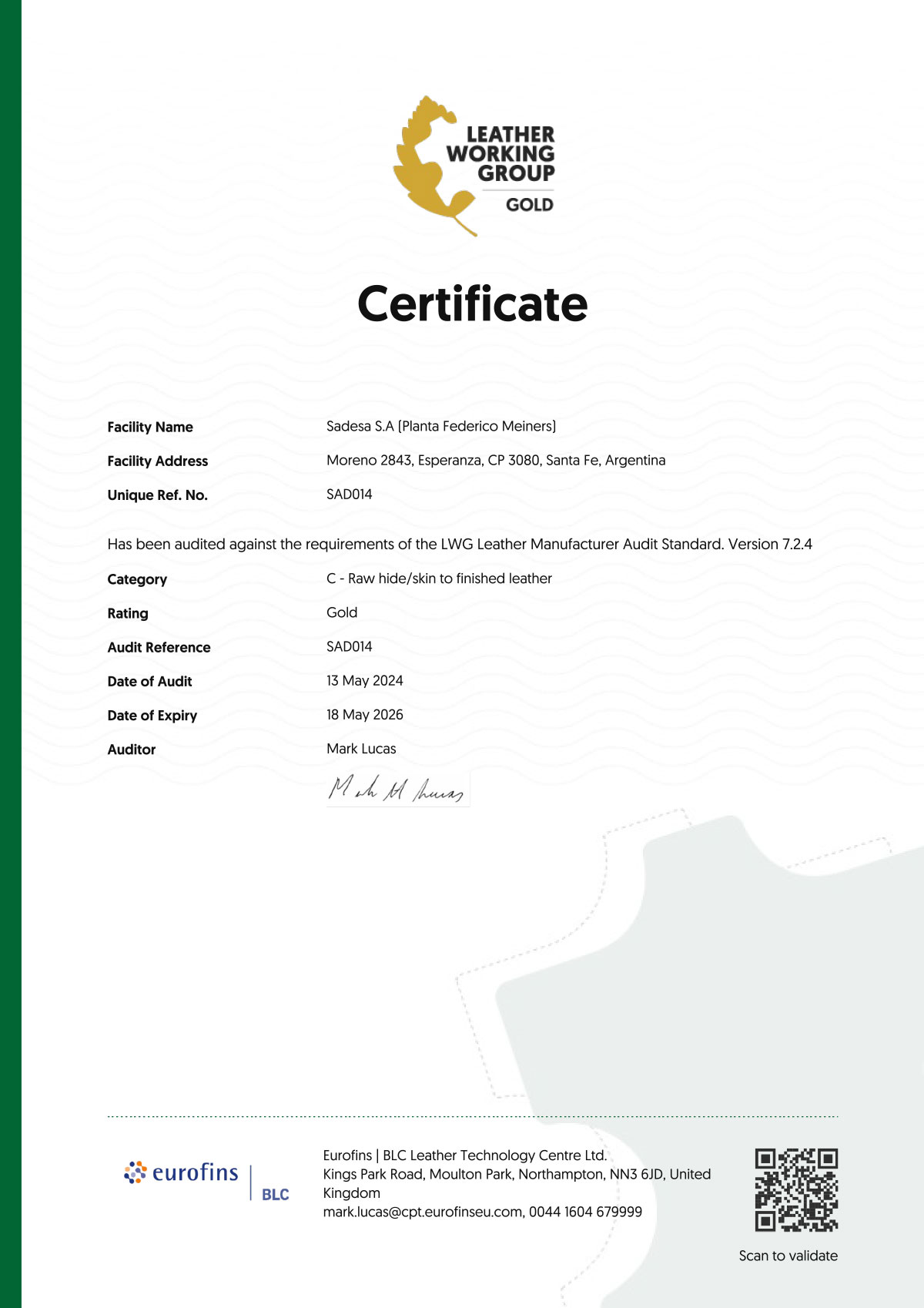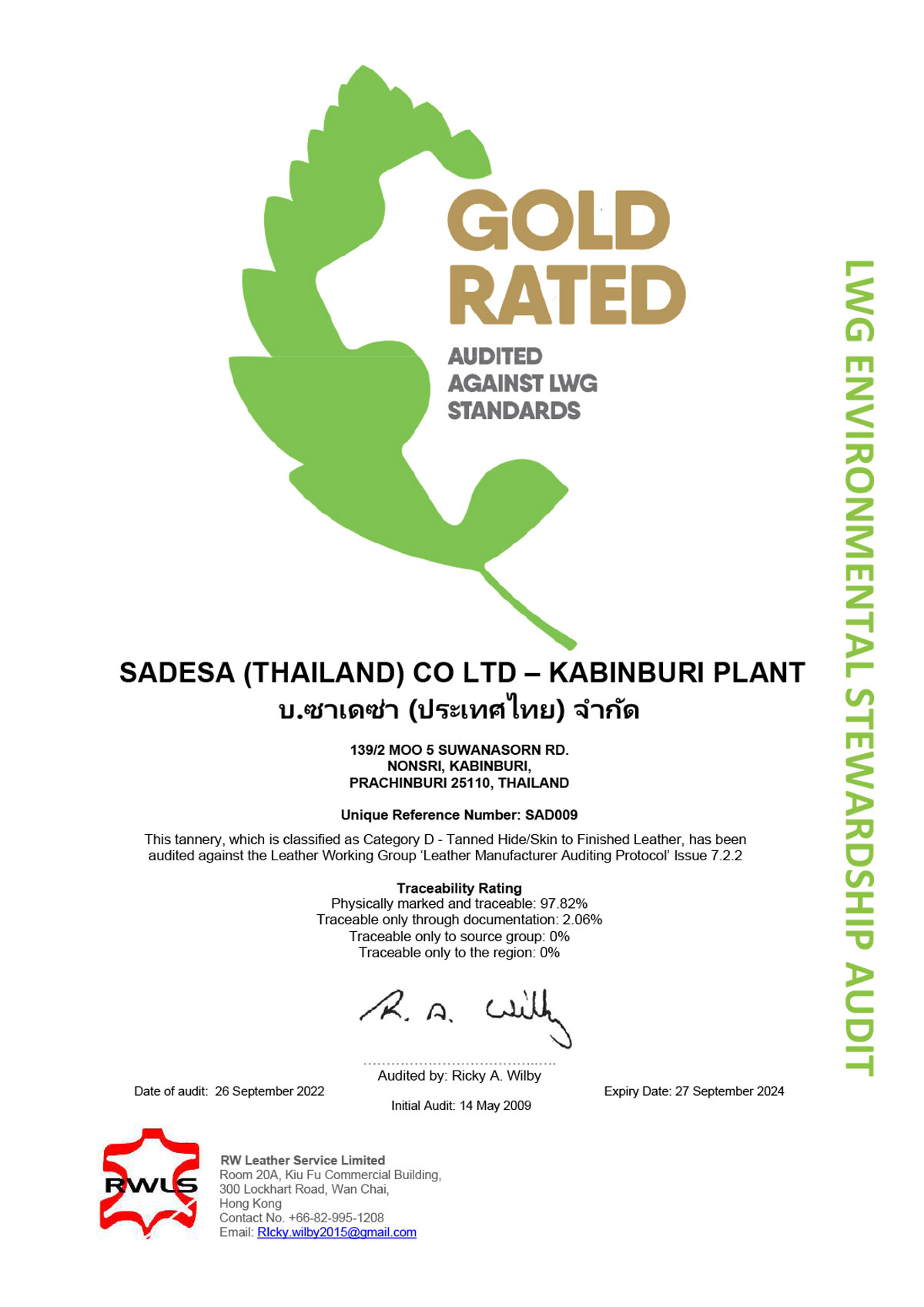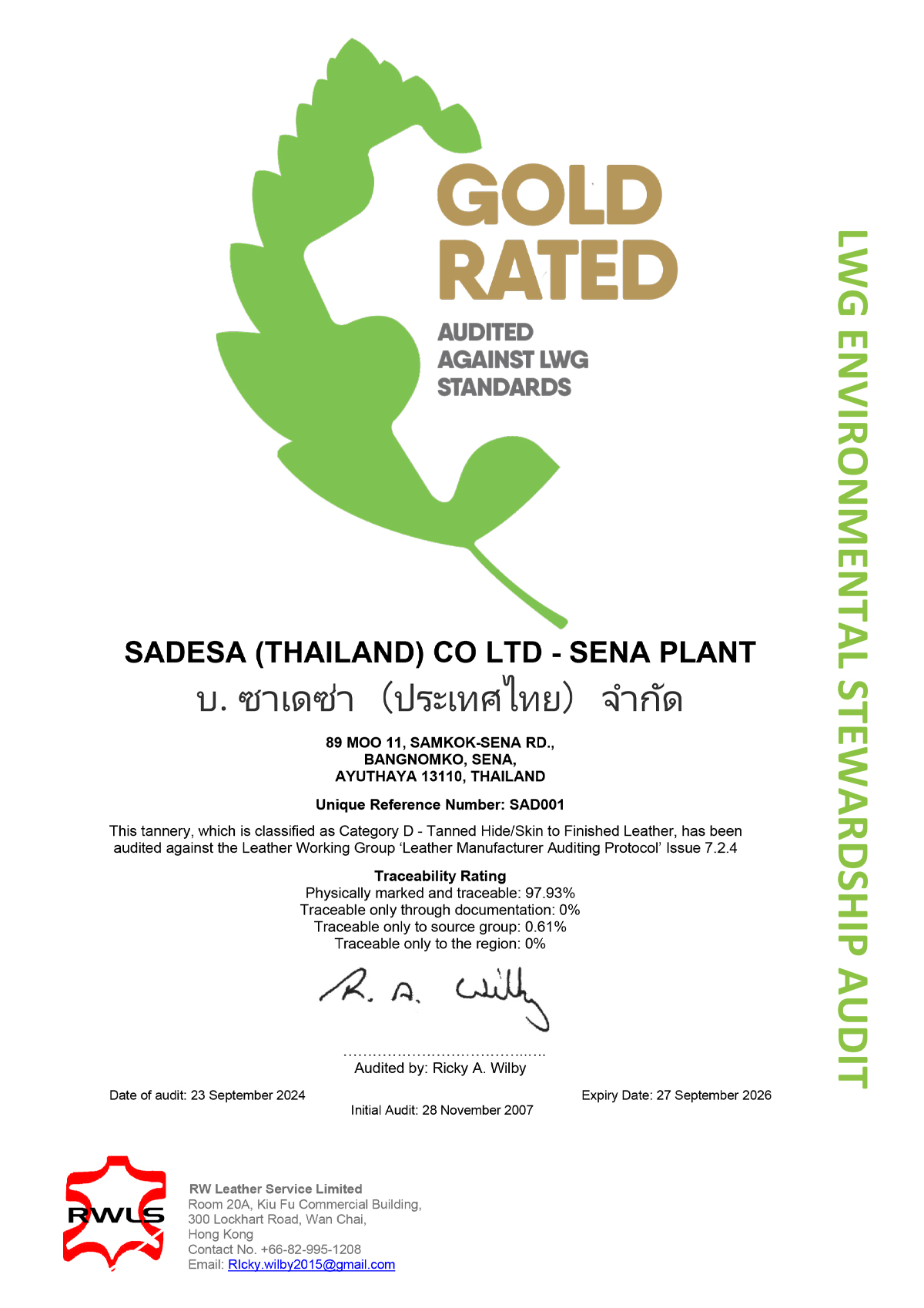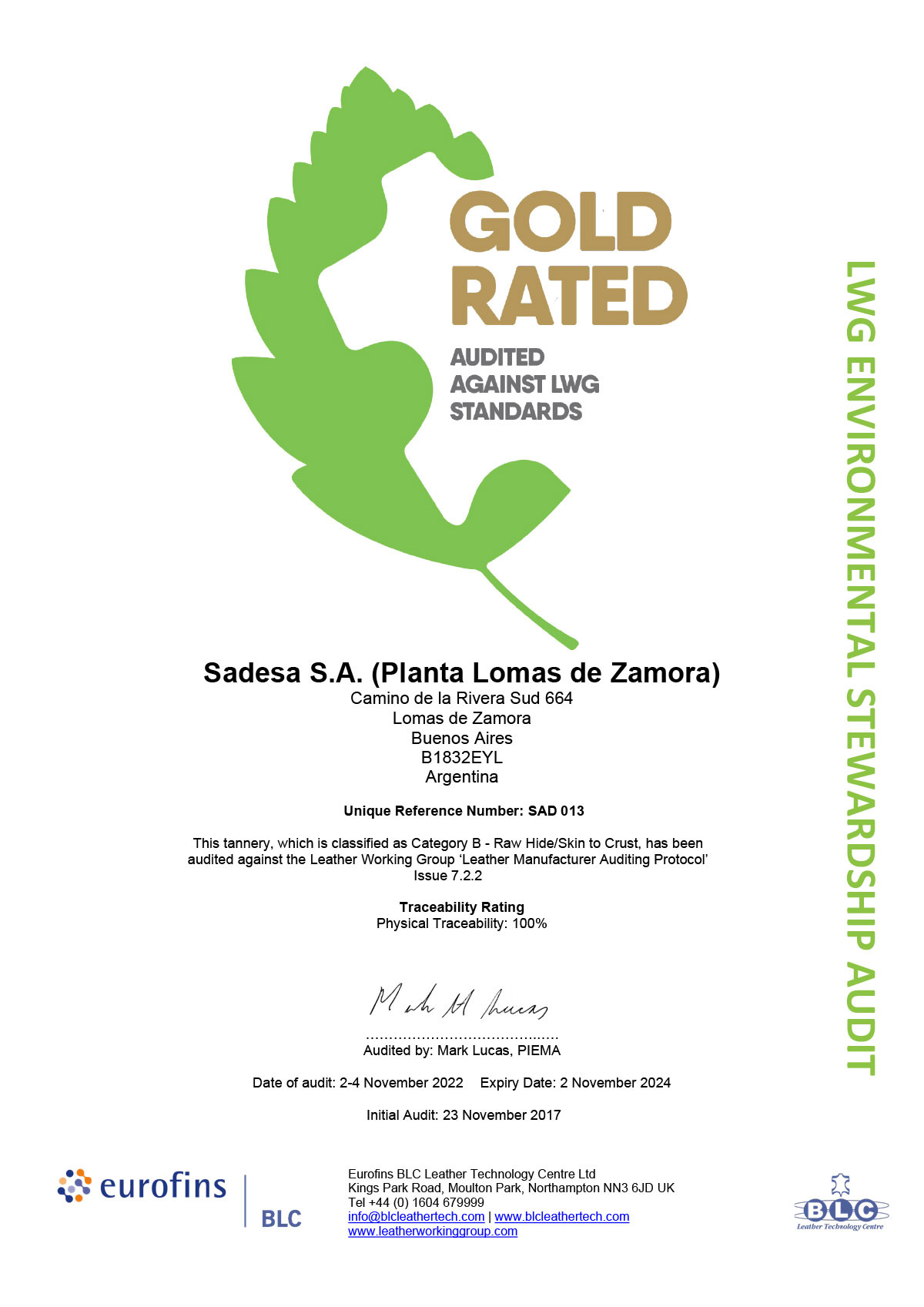Watch our SAFE video
OUR SUSTAINABLE leather process

Continuous investments are made in the construction and maintenance of state-of-the-art Water Waste Treatment Plants in each of our industrial facilities.
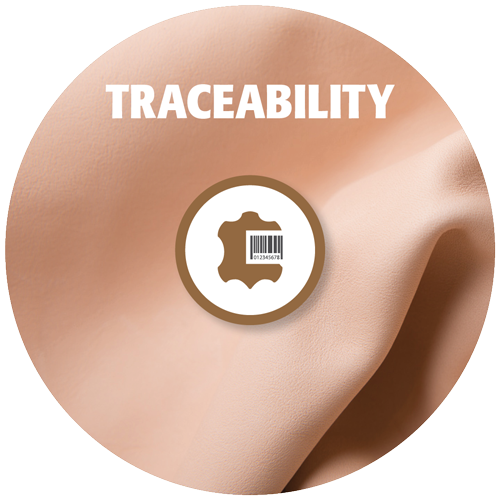
All hides are identified with a code upon arrival to the tannery and can be traced throughout production to the finished leather.

Our LWG Gold-awarded plants use 60% less energy than the average used by the industry.

75% of the waste generated during the wet process is reused and recycled.

Producing leather responsibly, in a sustainable way.
NEW! Leather as a material choice
NEW! Sadesa Compost
Leather is a by-product
Leather production for a circular economy
Photovoltaic solar panels
Transparency in the leather supply chain
LWG Awards
At Sadesa, we believe that the protection of the environment concerns all of us and that we will achieve better results establishing relationships with other industry players.
That is why Sadesa joined the Leather Working Group, a multi-disciplinary group, supported by BLC Leather Technology Centre and integrated by the major footwear brands and tanneries in the word.
Sadesa operates under strict local and international environmental standards and is periodically subjected to rigorous audits carried out by recognized organisms.
As a result, we have been awarded with a large amount of certifications that support our commitment to the environment.
LCA
Life-Cycle Assessment
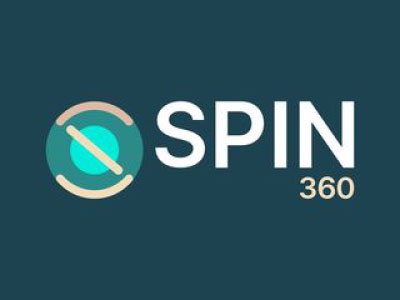
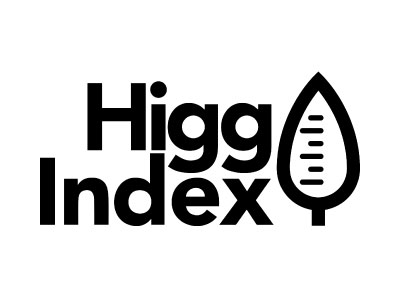
Sadesa commissioned an LCA study to measure the environmental footprint of our products in order to:
- identify areas of potential improvement to further minimize our impact.
- share information with our partners, providing a useful measurement tool.
Sadesa commissioned an LCA study to measure the environmental footprint of our products in order to:
- identify areas of potential improvement to further minimize our impact.
- share information with our partners, providing a useful measurement tool.


